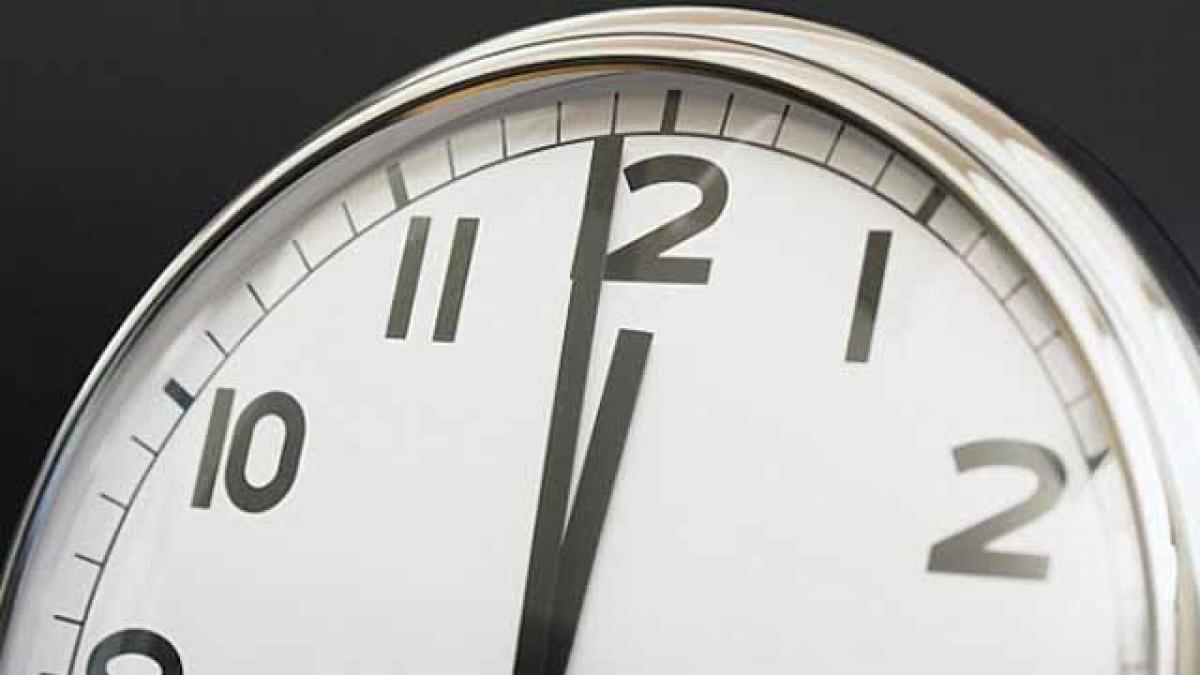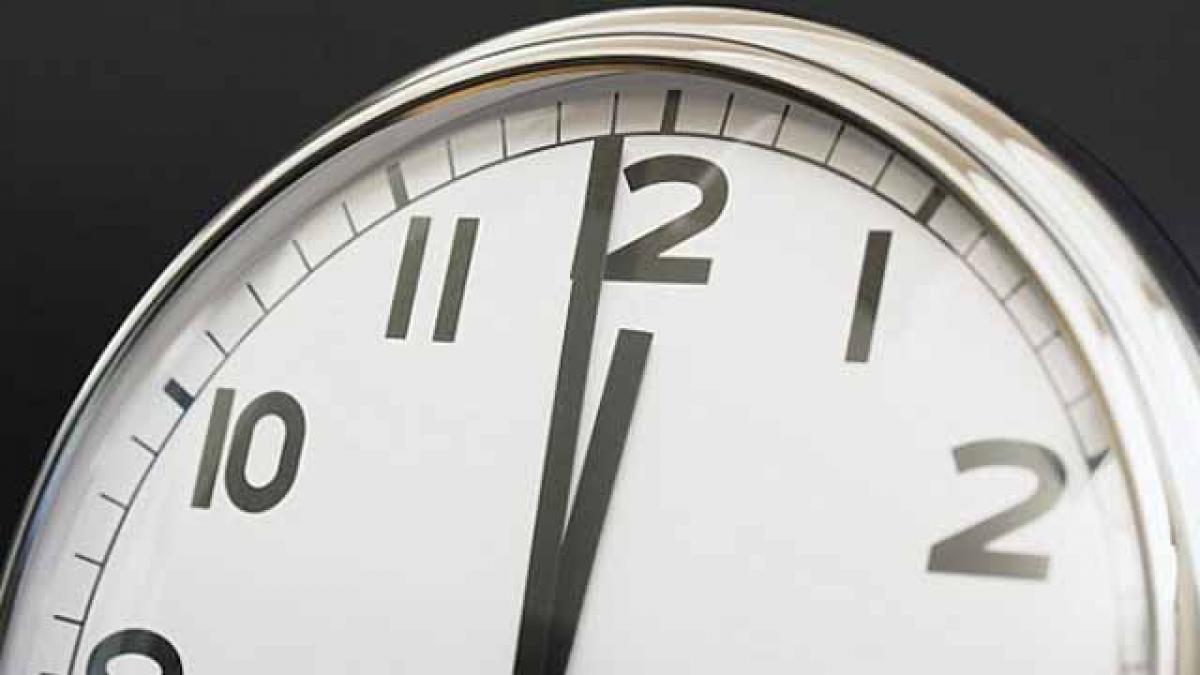Live
- BJP increases vote share
- Purandeswari hails Mahayuti landslide win in Maharashtra
- Voters reject dynastic politics in Karnataka: Raja Mannar
- By election results harbinger of 2028 election results: DCM DK Shivakumar
- Cold Wave Hits Agency Area, Temperatures Plummets on Ghat Regions
- MIXING FRUITS AND CULTURE
- BJP activists elated in Guntur
- Shakira to give her Lamborghini Urus to a lucky fan
- Sheraton Hyderabad Hotel Hosts a Joyful Fruit Mixing Event
- Mastering AI for workplace success
Just In

Not by much of course, this Tuesday (June 30) will be a fraction longer than other days as the scientists will add an extra second, called a ‘leap’ second, to the atomic clocks to synchronise the Earth’s rotation, which according to the Paris-based International Earth Rotation Service (IERS) was slowing down by around 2,000th of a second each day.
What is a leap second?
A leap second is an extra second that is added to an agreed-upon day every few years in order to keep Co-ordinated Universal Time (or UTC, the modern replacement for Greenwich mean time), the world standard for regulating clocks, in sync with Mean Solar Time, which marks the passage of time based on the sun's position in the sky.

What could happen to computer systems on June 30?
On June 30, not everyone will add the leap second in the same way or at the same time. In some systems, the computer clock shows 60 seconds instead of rolling over to the next minute, or showing the 59th second twice. As a result the computer sees a leap second as time going backward, causing a system error and the CPU to overload.
For computers that don't crash, processes based on precise timing, such as the amount of time a valve opens to add a chemical to a mix, may be off by half a second. But it remains to be seen whether this will create large-scale problems, as some computer scientists have predicted.
Not by much of course, this Tuesday (June 30) will be a fraction longer than other days as the scientists will add an extra second, called a ‘leap’ second, to the atomic clocks to synchronise the Earth’s rotation, which according to the Paris-based International Earth Rotation Service (IERS) was slowing down by around 2,000th of a second each day.
The ‘leap’ second has also made headlines in 2012 causing a few glitches in the World Wide Web. Internet giants Reddit, LinkedIn, Gizmodo and FourSqaure reportedly experienced glitches as their network clocks failed to read the extra second got added to the Coordinated Universal Time (UTC). Like the last one, the ‘leap’ second that is going to be added to the UTC Tuesday may cause a few hiccups although the global IT giants have taken care of the glitch well in advance.
Since 1972, this is the 26th ‘leap’ second the scientists going to add. However, the minuscule change in time hardly affect the life in general, in era of computers this is may have huge impact as lot of the software that supports websites couldn’t cope. There is a possibility that ‘Network Time Protocol’ (NTP) that syncs the computers with the world’s atomic clocks may go awry when it sees an extra second repeated on the clock.
Normally the clock would tick from 23:59:59 to 00:00:00 the next day. But, when the scientists add an extra second on June 30, the UTC will tick from 23:59:59 to 23:59:60, and then to 00:00:00 on July 1. To get rid of the ‘leap’ problem, the Google has come up with a technique called ‘leap smear’. The Google blogpost says that its NTP servers have been modified to gradually add a couple of milliseconds to every update, varying over a time window before the moment when the leap second actually happens.
This meant that when it became time to add an extra second at midnight, our clocks had already taken this into account, by skewing the time over the course of the day. Meanwhile, it’s learnt that Space Missions world over don’t take up launchings on the day a ‘leap’ second is added to avoid the risk of malfunctioning of their computers.
It may be mentioned that the ‘leap’ second added in 2012 created a bit of mess when the Altea reservation and departure system crashed forcing the air-travellers at Qantas and Virgin Australia take a manual check-in, leading to delay of flights. Although the ‘leap’ glitch is not as complex as the Y2K that scared the world at the beginning of the new millennium, it has potential to cause a few hiccups to some networks Tuesday night.
By Adepu Mahender

© 2024 Hyderabad Media House Limited/The Hans India. All rights reserved. Powered by hocalwire.com







